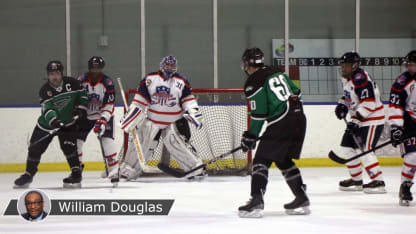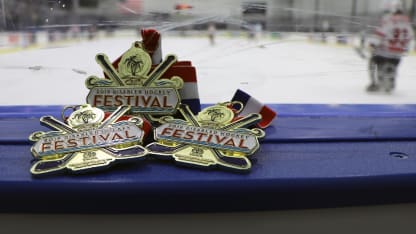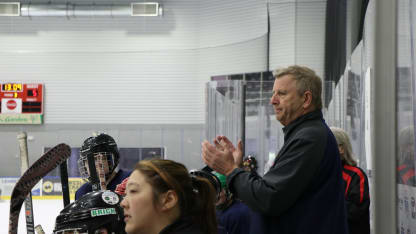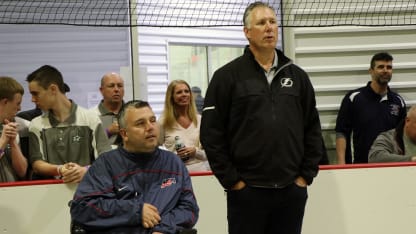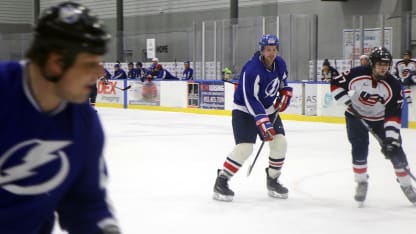"It's therapeutic for these guys," said Joey Martell, an Air Force veteran and captain of the Capital Beltway Warriors, who defeated Medina's Alaska team 6-2 Saturday and won the festival's Warrior B Freedom Division championship Sunday with a 5-3 win against the Blackhawks Warriors. "A lot of the guys, they suffer from the PTSD (Post Traumatic Stress Syndrome), the stress, but we don't worry about that here. We play hockey here."
James Sadecki entered the rink Friday afternoon with a guide dog leash in one hand and a goalie stick in the other. An hour later, the blind retired Air Force veteran from Connecticut was in the net stopping shots that he could hear but not see.
Blind/visually impaired players use metal pucks with ball bearings inside that produce a clanging sound that make it easier to follow. For Sadecki, playing hockey and being on ice gives him independence.
"I've been blind now for 15 years and skating is the most freedom I've felt as a blind person," said Sadecki, who lost his sight in an accident and has been playing blind hockey for three years. "It's something I can do on my own, I don't have to hold on to anybody. It's refreshing, going fast and everything."
